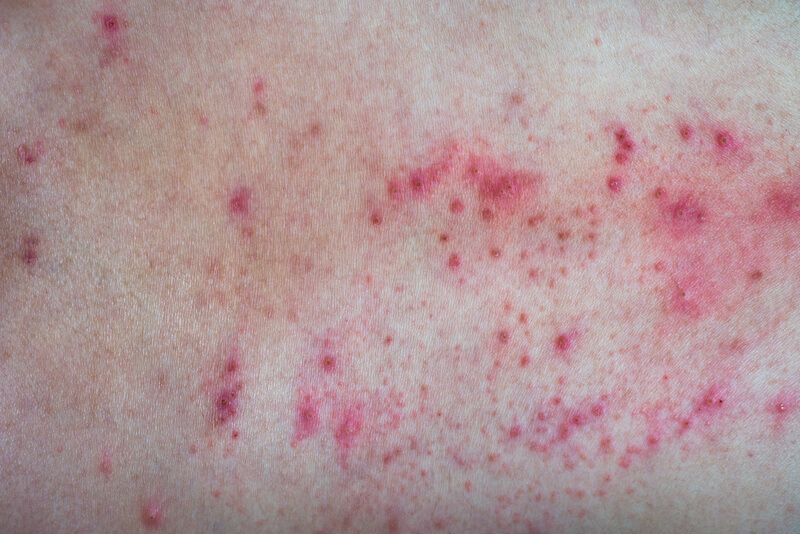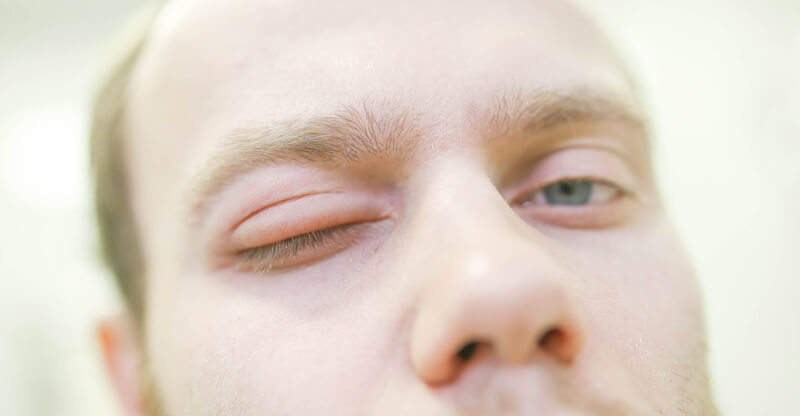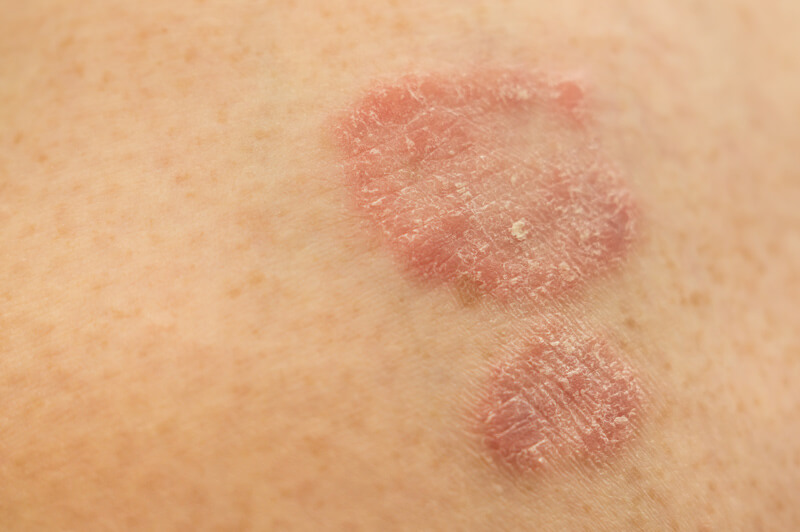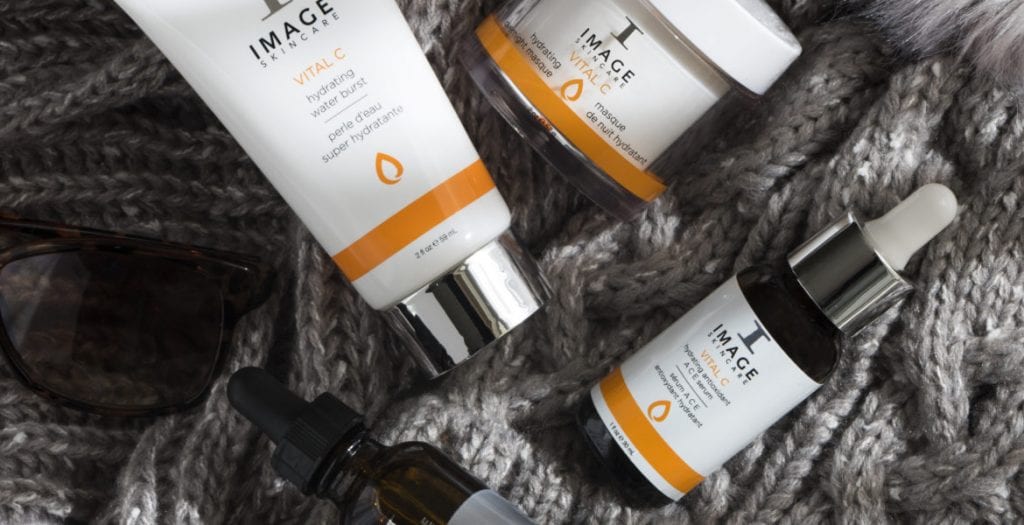Are Allergies Causing Your Skin Sensitivity?
Posted on |

Have you noticed red patches on your skin? Do you have bumps or scaling that seem to appear suddenly? It’s not uncommon to develop allergic reactions to various elements around us. Over time our bodies change and so do the allergies that cause us skin sensitivity. Managing these reactions can be stressful without the right diagnosis and treatment.
Allergies and the Skin
Allergies are a response from the immune system. They let us know that we are hypersensitive to a typically harmless substance. Whether an allergen is ingested or comes into contact with your body, the immune system sees it as an invader.
For protection, antibodies are sent to attack the allergen. Depending on your immune system’s perceived amount of danger, a wide spectrum of bodily reactions may occur.
Allergic reactions can manifest as wheezing, watery eyes, or a runny nose. They can also present as allergic skin reactions.
Skin allergies take on a few variations, all of which are known as allergic dermatitis.
Eczema

Eczema (atopic dermatitis) presents as dry, sensitive skin. Signs and symptoms include red patches that are itchy and can become scaly and weepy. Eczema comes and goes depending on how well it’s managed with treatment.
Hives
Hives (urticaria) present as raised, red itchy bumps, which can be caused by an allergen or infection. Foods such as nuts, chocolate, and fish give many people hives.
It’s important to note that hives are a skin condition that often occurs during serious allergic reactions, otherwise called anaphylaxis.
Contact dermatitis

Contact dermatitis (irritant and allergic) is the classic skin reaction to an allergen. Small, red, itchy bumps develop on the site where the skin was exposed to an irritant.
Swelling

Swelling (angioedema) occurs when an excessive amount of bodily fluids collects in one spot. The most common areas for this to occur are around the eyes, lips, and face. In some instances, swelling around or in the throat occurs.
Swelling can restrict airways and cause difficulty swallowing. If this happens, seek medical help immediately.
How Allergies Develop

As stated above, allergies are caused by our body’s hyper response to a harmless substance. But what makes our immune system react this way?
Heredity plays a major role in the substances we are allergic to. Allergies tend to get passed down in families. So, if one or both of your parents have an allergy, be wary of the same allergen(s).
Changes in your immune system can also cause an adult-onset of allergic reactions and skin irritations. These changes include autoimmune and immune deficiency diseases.
Autoimmune diseases are diagnosed when the body attacks and damages its own tissue. Immune deficiency diseases decrease the body’s ability to fight off infection.
Common Causes of Skin Allergies

Allergic skin reactions can be caused by a wide variety of substances including:
- Face and Body Lotions
- Soaps Including Antibacterial and Unscented
- Shampoos and Conditioners
- Laundry Detergents and Fabric Softeners
- Household Cleaners
- Plants and Pollen
- Pet Dander
- Latex
- Metal That Contains Nickel
To complicate matters, some allergens aren’t activated until they’re exposed to sunlight. Getting an allergy test is the best way to identify what you’re allergic to and how to minimize your symptoms.
What to Expect From an Allergy Test
Skin Prick Test

Allergy tests, called scratch tests or skin prick tests, are simple procedures that require a little patience. Skin prick tests can be done for a variety of things you may be allergic to such as pet dander, various pollens, various foods, mold, and dust mites.
Allergists will put single drops of liquid containing common allergens on your forearm. They will then use small lancets to lightly puncture the top layer of the skin (epidermis).
After a 15 to 20-minute wait, your doctor will examine the area for irritation, bumps, and inflammation. This will show which, if any of allergens cause a reaction.
Patch Test

A patch test may be done to test for an allergic reaction to substances that may come into contact with your skin. Contact dermatitis is often caused by substances found in household chemicals, cosmetics, moisturizers, and even hair dyes. Examples of common allergens are nickel, latex, resins, fragrances, and preservatives.
Patches are usually placed on your skin for 48 hours, and then checked for skin reactions. Bathing or any activity that may cause a lot of perspiration must be avoided.
Your skin may show a weak, strong, or extreme positive reaction to any one of the patches. It may show that a substance is an irritant to your skin or no reaction at all.
Products for People with Allergic Dermatitis
Once you know what you’re allergic to you can avoid it as much as possible for clearer skin. Keep in mind that allergies are caused by an overactive immune system. Someone with one allergen has a greater risk of developing more.
For that reason, it’s best to use products that don’t include the most common allergens and are formulated to be gentle on the skin.
At Vibrance MedSpa, we trust IMAGE, Latisse, Skin Medica, and iS Clinical products. They are carefully formulated to effectively protect skin while fighting signs of aging.
Dermatologists, plastic surgeons, and skin-care professionals trust these products to be gentle on the skin. Before using any product, remember to test it first on a small area of your skin. This will help minimize any unwanted skin reactions that may occur.
For more information on how we can support the health of your sensitive skin, contact us today. iS

